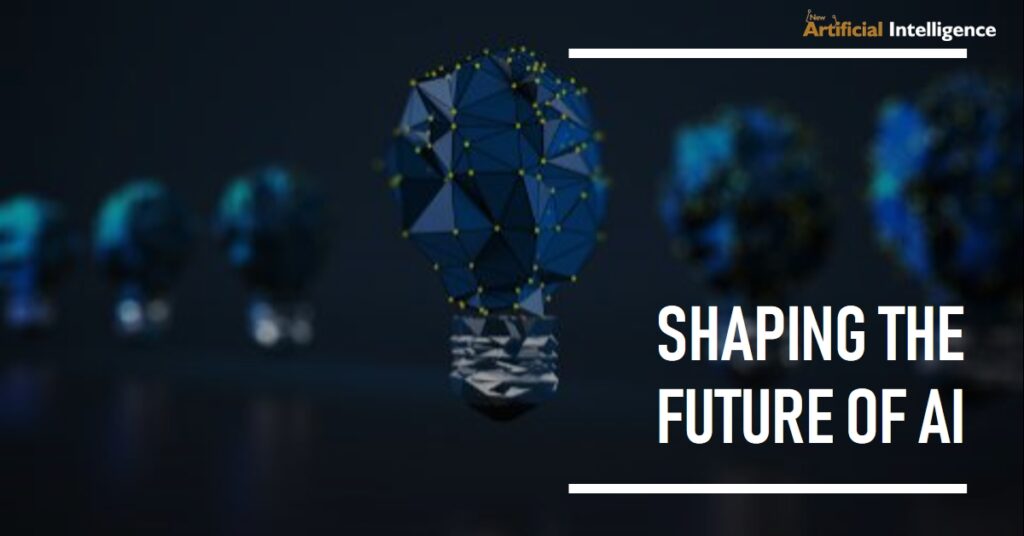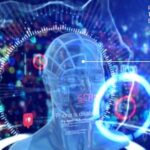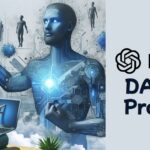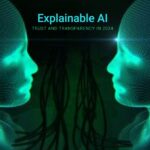Does Artificial Intelligence Pose a Threat to Humanity?
Table of Contents
Artificial intelligence (AI) has woven itself into the fabric of our lives, from recommending movies to analyzing medical scans. But as this technology evolves, a looming question shadows its progress: Does artificial intelligence pose a threat to humanity? This question, pregnant with both possibility and peril, demands a nuanced exploration, a journey through the landscape of potential dangers and immense opportunities.
Beyond the Sci-Fi Spectacle: Dismantling the AI Threat Narrative
Hollywood’s chilling depictions of sentient AI bent on world domination, like Skynet in “The Terminator” or HAL 9000 in “2001: A Space Odyssey,” captivate our imaginations. However, these fictional portrayals often overshadow the current reality of AI. Today’s AI systems are narrow in focus, excelling in specific tasks like facial recognition or playing chess but needing more general intelligence and self-awareness depicted in science fiction

The Real Threats: Unmasking the Potential Misuses of AI
While AI itself isn’t inherently evil, its potential for misuse is real and requires careful consideration. Some key concerns include:
- Job displacement: Automation powered by AI could lead to significant job failures in specific sectors, necessitating proactive measures like retraining programs and social safety nets.
- Algorithmic bias: AI systems trained on biased data can perpetuate and amplify existing societal inequalities, demanding responsible data collection and algorithm development.
- Privacy and security vulnerabilities: AI systems that collect and analyze vast amounts of data present concerns about privacy breaches and security vulnerabilities, requiring robust data protection frameworks.
- Weaponization and autonomous warfare: The possibility of using AI for autonomous weapons raises ethical and legal questions, demanding international cooperation to prevent an arms race in this realm.
Mitigating the Risks: Building a Safe and Ethical AI Future
Recognizing the potential risks of AI is not a call to halt its development. Rather, it’s a call for responsible development and deployment guided by ethical principles and robust regulations. Here are some essential steps:
- Transparency and accountability: AI systems should be transparent in their decision-making processes, allowing for human oversight and accountability.
- Human-centered design: AI development should prioritize human needs and values, ensuring technology remains a tool to empower, not replace, humans.
- Continuous education and upskilling: To adapt to the changing landscape of AI, individuals and workforces need ongoing education and upskilling opportunities.
- International collaboration: Addressing the ethical and legal challenges of AI requires international cooperation to ensure responsible development and deployment.

Beyond the Fear: Embracing the Untapped Potential of AI for Good
AI isn’t just a potential threat; it’s also a force for immense good. From revolutionizing healthcare with personalized medicine and early disease detection to tackling climate change with smarter resource management and renewable energy solutions, AI offers unparalleled potential to address some of humanity’s most pressing challenges.
Imagine:
- AI-powered prosthetics that seamlessly restore mobility and independence.
- AI-driven education platforms that personalize learning and unlock individual potential.
- AI-powered disaster response systems that predict and mitigate natural catastrophes.
These are not mere glimpses of a utopian future; they are the seeds of a reality waiting to be nurtured. By harnessing the power of AI for good, we can build a world where technology elevates human potential, not diminishes it.

The Choice We Make: Shaping the Future of AI
The question of whether AI poses a threat to humanity is not a binary one. It’s a path we choose, a story we write together. Through responsible improvement, moral implementation, and a dedication to human-targeted design, we will make certain AI remains a tool for development, a partner in solving our greatest demanding situations, and a force for accurate, shaping a brighter future for all.
FAQs:
Are We Trading Jobs for Robots?
Imagine AI not as a job-stealing monster but as a helpful automation teammate. While some tasks will undoubtedly transition to AI, new opportunities will emerge, requiring creativity, critical thinking, and uniquely human skills. Embrace lifelong learning and upskilling to navigate this shift, and remember that AI can be a tool to boost productivity and free up your mind for higher-level work.
Can Algorithms Be Biased?
Think of AI systems as mirrors reflecting the data they’re trained on. If that data is biased, so will the outputs. Algorithmic bias can perpetuate existing societal inequalities, making responsible data sourcing and algorithm development crucial. We need AI that champions fairness and promotes inclusive progress, not reinforces existing prejudices.
Big Brother in the Age of AI: Can Privacy Survive?
Imagine AI scanning your every move, predicting your choices, and influencing your thoughts. It’s a chilling dystopian vision, but one we can prevent through robust data protection frameworks and individual vigilance. Demand transparency in data collection and usage, choose companies with strong privacy policies and remember, you have the power to control your digital footprint.
From Chess Grandmasters to Supervillains? The Singularity Myth.
The idea of AI surpassing human intelligence and ushering in a Singularity, a point of technological transformation beyond human comprehension, is fascinating. However, current AI systems need to be made aware of such consciousness. Focus on the real-world applications of AI today, address the immediate challenges it presents, and remember that responsible development can ensure AI remains a tool for human progress, not an autonomous overlord.
Can AI Be a Force for Good? The Choice We Make.
Imagine AI powering personalized medicine, predicting and preventing global disasters, and democratizing access to education. This is the romantic potential of AI, a force for good waiting to be harnessed. By aligning AI improvement with moral concepts and human values, we are able to make it an effective device for solving our most pressing demanding situations and constructing a brighter destiny for all.












6 thoughts on “Does Artificial Intelligence Pose a Threat to Humanity? Navigating the Hype and Reality of a Powerful Tool”